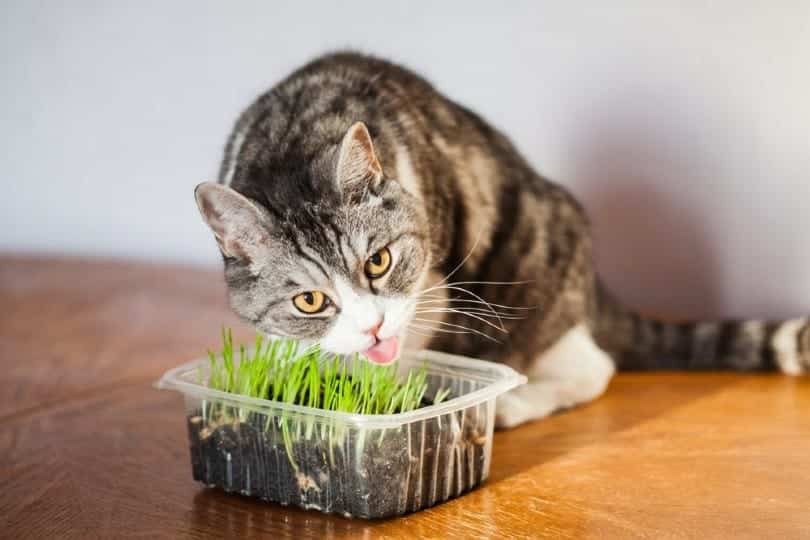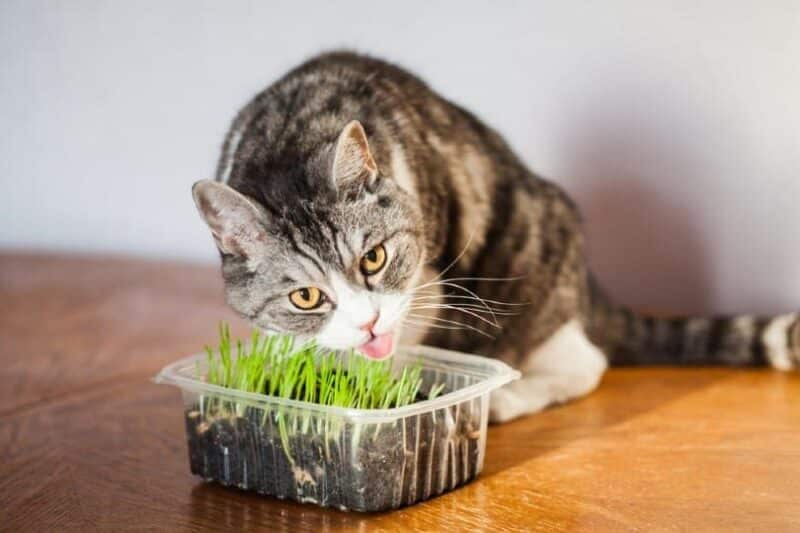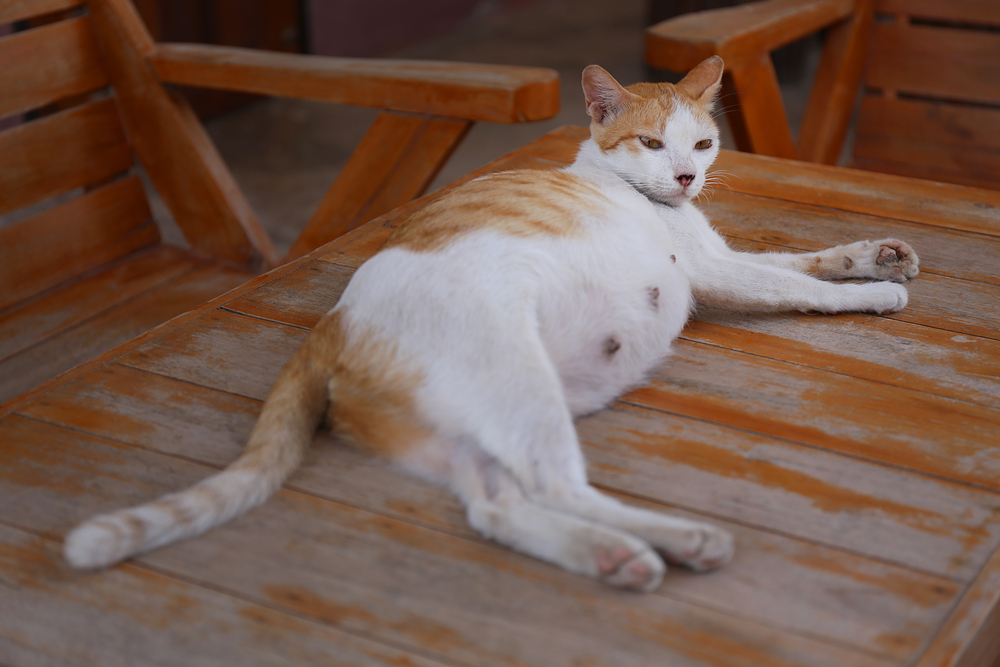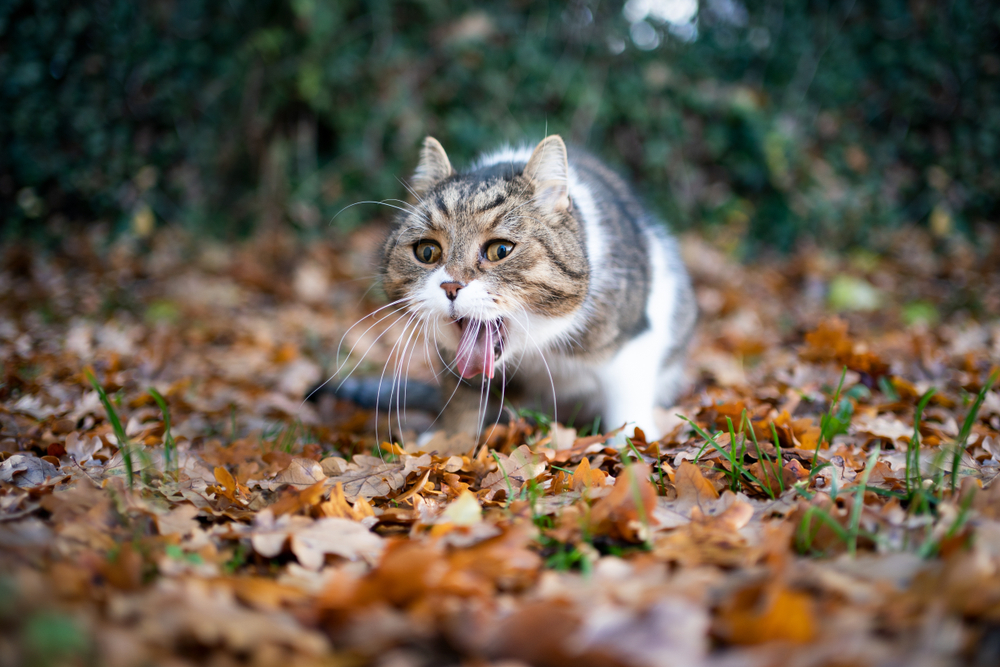Click to Skip Ahead
There is nothing quite like the amazing reaction many cats have with catnip. While individual cats’ responses to it can vary greatly, most cats will lick, rub, roll, vocalize, and become very hyperactive while playing with it! It really can make cats crazy! The effects are only short-lived, up to half an hour or so, but it can be a really fun part of interacting with your cat.
Given the intense reactions that are possible with catnip, it is not unreasonable to wonder whether your cat can overdose on it, however, there is no hard evidence that catnip can overdose your cat. Let’s explore the topic of catnip and answer this in more detail.
What is Catnip?
Catnip is an herb from the mint family with the scientific name Nepeta cataria, and it is found commonly throughout the world. It happily grows in many regions and its extract is then “bottled” and used in lots of cat toys and products. You can grow your own and then dry the leaves, ready to be sprinkled for your cat’s enjoyment!
How Does Catnip Work?
Creates Euphoric Behavior
The active ingredient in catnip is an organic compound called Nepetalactone, which is produced in the plant’s leaves and stems. When a cat inhales this compound, it is thought to activate parts of the nose that normally detect cat pheromones (the “Vomeronasal Organ”). To get the compound into this organ, your cat may inhale while lifting their upper lip, in a behavior called the Flehmen response.
Essentially your cat’s brain interprets catnip as an intense source of cat pheromones, and this triggers the massive euphoric behavioral responses that follow by activating “happy” receptors in the brain. It is thought to be the cat equivalent of an LSD trip, but rest assured catnip is not addictive for your cat! Some sources would also suggest that the pheromone response caused by catnip is similar to a sexual response and so the triggered behaviors may also be sexual in origin!
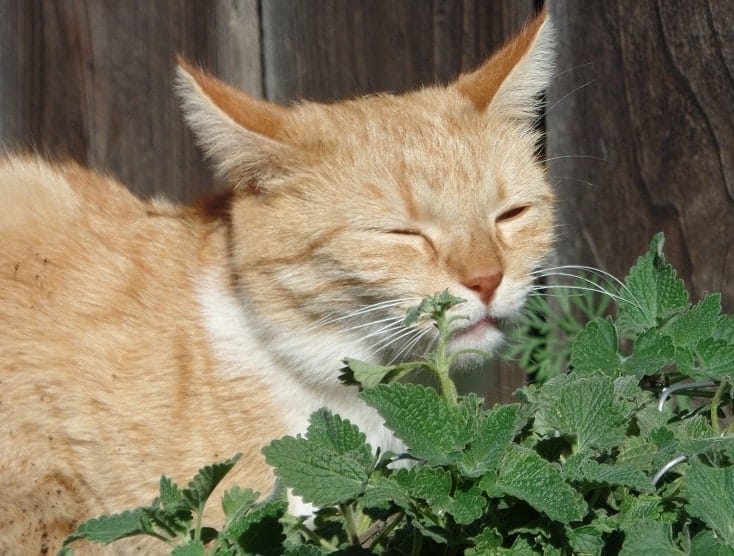
Reactions Vary
Not all cats react in the same way to catnip—about 30% do not react to it, and this is thought to be based on their genetics. Catnip makes some cats hyperactive, others sleepier and more lethargic, and the duration of the effect is also highly variable—after a while cats become immune to further effects. It is quite normal for cats to be calm and still afterward—almost a “come-down” from the effects of the experience!
Catnip seems to work best in adult cats; kittens and older cats show less of a response. It is thought that kittens only develop the required brain responses and behaviors at about 6 months old. That said, catnip does not harm kittens so it is reasonable to try it with your kitten and see how their responses change over time!
How Should I Use Catnip with My Cat?
Catnip is very useful as a reward for good behavior and can be used to encourage exercise (especially useful in indoor cats). It will also entice your cat to use particular toys such as scratching posts to keep them away from furniture.
If catnip has a calming effect on your cat, it can be great to reduce stress, for example in cat carriers and during travel.
Does Catnip Affect Humans?
The parts of our nose and brain that detect pheromones are not as powerful as they are in cats. This means the pheromone-based behavioral effects of catnip are not seen in people. However, some people do consider catnip a useful alternative medicine for various medical purposes and it is reported to have quite a range of effects on humans. At the very least, it can make a soothing tea!

Can I Give My Cat Too Much Catnip? Can My Cat Overdose on Catnip?
Fortunately, there is no evidence that catnip is harmful to cats in any quantity. Cats are good at self-regulating and stopping themselves from becoming over-stimulated. They seem to become immune to the effects after a short period and if catnip is used a lot, cats will become less and less responsive to it over time. These would seem to be natural limitations on the effects of catnip.
The brain and nervous system in many species are very good at protecting themselves from inappropriate or excessive stimuli by slowly reducing their responses over time, and this seems to happen with catnip too. Catnip is, therefore, best used in moderation and as a special treat only every so often, to ensure your cat gets the best effects from it.
Cats typically suffer no ill effects from eating catnip but will not get the same behavioral responses from eating it – for these, the scent must be inhaled into the vomeronasal organ. If your cat eats an exceptionally large amount of catnip, it may produce a minor tummy upset with some vomiting and diarrhea, but this is not common. Although treatment is likely to be unnecessary, do contact your local veterinary clinic if you are concerned about your cat.
Conclusion
Catnip is a common herb that produces compounds that act as artificial cat pheromones when inhaled and activate various “happy” parts of the brain. These chemical triggers produce the marvelous hyperactive, playful, or sleepy responses that different cats have – although some 30% of cats do not respond to catnip.
The good news is that catnip is not harmful to your cat and cats cannot overdose on it. Cats are good at self-regulating and will remove themselves from the experience after a while, becoming immune to the effects after 15–30 minutes. Cats will also gradually lose the ability to respond to catnip if they are exposed to it too regularly—for these reasons using catnip in moderation and only every so often is best.
Catnip is a very useful part of your interactions with your cat, encouraging play, exercise, and the use of particular toys! The best bit is that you can grow it yourself!
Featured Image Credit: Olga_Malinina, Shutterstock

